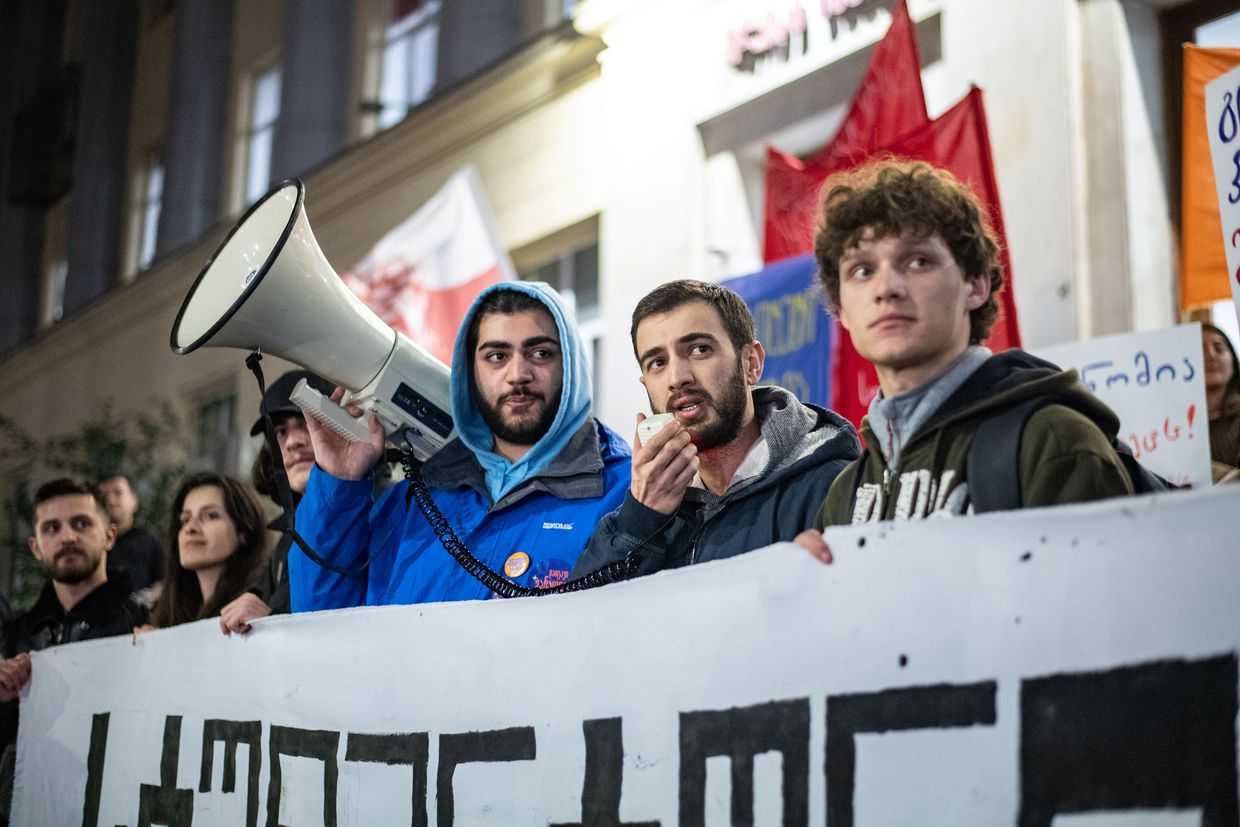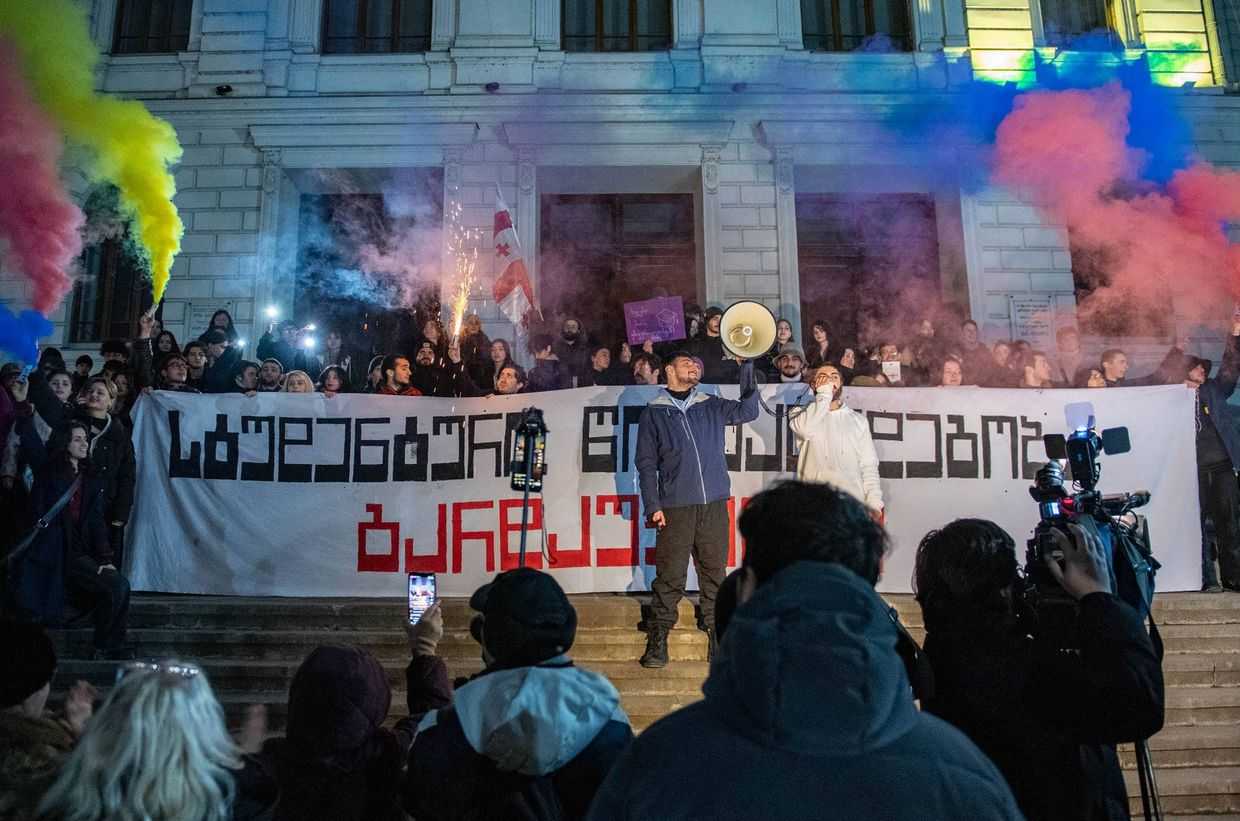
Queer rights advocacy group Tbilisi Pride has launched Pride Week in Tbilisi with a film screening.
On Tuesday, Wet Sand, a film about homophobia by Georgian director Elene Naveriani, was screened at the Khidi nightclub.
The club and surrounding area were heavily protected by police against several dozen anti-queer campaigners, including ultraconservative leaders Guram Palavandishvili, Levan Chachua, Orthodox priest Davit Isakadze, and members of far-right group Alt Info. Some of them drove by the club and honked the horns of their cars to protest the event.

Several Western ambassadors attended the event and offered their support, including those of the US, Sweden, the Netherlands, France, the EU, and Israel.
The film premiere on Tuesday was the first of three closed events planned for this year’s pride week. An international conference will follow on Thursday, while the week will conclude with Pride Fest on 2 July.
Several days before Pride Week was launched, Tbilisi Pride confirmed that they did not plan a street march for equal rights this year, citing the lack of security, last year’s homophobic riots, and the failure of the authorities to pursue the organisers of the violence, the far-right group Alt Info.
Tbilisi Pride also criticised Georgian Prime Minister Irakli Gharibashvili, who on 22 June, six days before Pride Week, accused them and liberal group the Shame Movement of causing the riots in Tbilisi last July.
While the Interior Ministry quickly followed up with a statement vowing to protect closed events during Pride Week, Tbilisi Pride has remained concerned about the silence from political leaders, who they urged to also publicly and clearly commit to securing their events.
[Read more on OC Media: Georgian extremist group Alt Info threatens Pride week]
On 27 June, Georgian authorities said they had launched an investigation into calls for violence and threats but stopped short of charging any of Alt Info’s leaders after they promised to thwart this year’s Pride Fest.
The lack of prosecution of the leaders of the violence, widely documented by local media who came under attack on 5 July 2021, was also reflected in the European Commission’s list of recommendations for Georgia as a precondition for their EU candidacy status to be reexamined later this year.
‘[M]ove swiftly to strengthen the protection of human rights of vulnerable groups, including by bringing perpetrators and instigators of violence to justice more effectively’, the Commission’s memo from 17 November read.
During a 26 June press conference, Tbilisi Pride mentioned their wish to ‘avoid polarisation and tensions’ amidst public outcry over Georgia failing to secure EU candidacy status earlier in June, and in the run-up to the third mass anti-government protest slated for Sunday.
Defiant Cafe refuses to remove a rainbow flag
As the film screening was underway on Wednesday evening, the Union of Orthodox Parents moved from Khidi to the Mziuri Cafe in Tbilisi. The group is led by extremist priest Davit Isakade, and has ties to the Georgian Orthodox Church.
Members of the group held a banner reading ‘legalisation and propaganda of sodomites is a genocide’ and demanded that the cafe remove a rainbow flag hung in solidarity with queer people. They were prevented from approaching the cafe by police.

The Union of Orthodox Parents renewed their protest against the rainbow flag in Mziuri Cafe on Wednesday, and demanded a law be introduced against the ‘propaganda of sodomy’.
The Union is among the oldest fringe groups in Georgia, responsible for attacking a Halloween party in downtown Tbilisi in 2008 and storming a live TV talk show on Kavkasia two years later.









